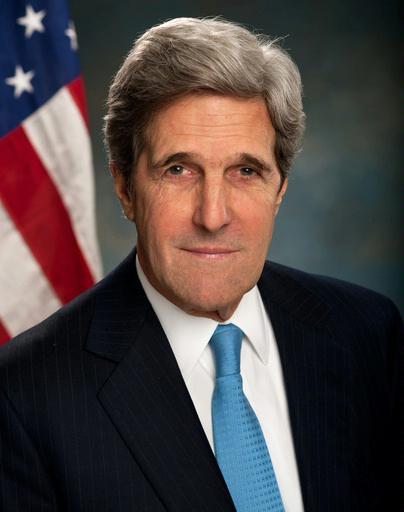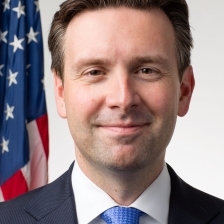On December 15, the White House announced that a bill extending the Iran Sanctions Act for 10 years would become law without President Obama’s signature. The administration had previously said that Obama would likely sign it. The White House said that the extension, “while unnecessary, is entirely consistent” with U.S. commitments under the nuclear deal with Iran and the world’s major powers. Iranian officials, however, have condemned Congress’ passing of the bill as a violation of the agreement. The following are excerpted remarks from U.S. officials on the Iran Sanctions Act.
Secretary of State John Kerry
 Ensuring the continued implementation of the Joint Comprehensive Plan of Action is a top strategic objective for the United States and for our allies and partners around the world. The JCPOA makes our nation, and the entire world, safer by verifiably ensuring Iran cannot develop a nuclear weapon.
Ensuring the continued implementation of the Joint Comprehensive Plan of Action is a top strategic objective for the United States and for our allies and partners around the world. The JCPOA makes our nation, and the entire world, safer by verifiably ensuring Iran cannot develop a nuclear weapon.
This administration has made it clear that an extension of the Iran Sanctions Act is not necessary either to address activity outside the scope of the JCPOA or to snap back sanctions in the event Iran should significantly fail to perform its nuclear commitments. Even if ISA were to have lapsed, we would continue to have all the authorities we need in place to address those issues. At the same time, we have also been clear that the extension of this law is entirely consistent with our commitments in the JCPOA. Extension of the Iran Sanctions Act does not affect in any way the scope of the sanctions relief Iran is receiving under the deal or the ability of companies to do business in Iran consistent with the JCPOA. The Iran Sanctions Act was in place at the time the JCPOA was negotiated and has remained so throughout the deal’s implementation.
The administration continues to have all of the necessary authorities to waive the relevant sanctions, with or without the extension of ISA. I will continue to exercise those authorities, as we committed to do in the JCPOA and have done since Implementation Day almost one year ago. I have communicated to Iranian Foreign Minister Zarif and to our P5+1 counterparts that while the existing waivers are unaffected by the extension of ISA's sunset and do not need to be renewed at this time, I have done so today to ensure maximum clarity and convey to all stakeholders that the United States will continue to uphold our commitments under the JCPOA.
As I have said before, we are committed to doing our part to ensure that the JCPOA is working for all participants and that the Iranian people feel the appropriate benefits of the deal in order to enhance its long-term viability. As long as Iran adheres to its commitments under the JCPOA, we remain steadfastly committed to maintaining ours as well.
― Dec. 15, 2016, in a statement
White House Press Secretary Josh Earnest
 This Administration has made clear that an extension of the Iran Sanctions Act, while unnecessary, is entirely consistent with our commitments in the Joint Comprehensive Plan of Action (JCPOA). Consistent with this longstanding position, the extension of the Iran Sanctions Act is becoming law without the President's signature. Extension of the Iran Sanctions Act, which was in place at the time the JCPOA was negotiated and remains so today, does not affect in any way our ability to fulfil our commitments in the JCPOA. The Administration has, and continues to use, all of the necessary authorities to waive the relevant sanctions, to enforce those that are outside the scope of the JCPOA, and to reimpose sanctions if necessary in the event that Iran should fail to perform its commitments under the JCPOA. Ensuring the continued implementation of the JCPOA is a top strategic objective for the United States and for our allies and partners around the world. The JCPOA makes our nation, and the entire world, safer by verifiably ensuring Iran cannot develop a nuclear weapon. As long as Iran adheres to its commitments under the JCPOA, we remain steadfastly committed to maintaining ours as well.
This Administration has made clear that an extension of the Iran Sanctions Act, while unnecessary, is entirely consistent with our commitments in the Joint Comprehensive Plan of Action (JCPOA). Consistent with this longstanding position, the extension of the Iran Sanctions Act is becoming law without the President's signature. Extension of the Iran Sanctions Act, which was in place at the time the JCPOA was negotiated and remains so today, does not affect in any way our ability to fulfil our commitments in the JCPOA. The Administration has, and continues to use, all of the necessary authorities to waive the relevant sanctions, to enforce those that are outside the scope of the JCPOA, and to reimpose sanctions if necessary in the event that Iran should fail to perform its commitments under the JCPOA. Ensuring the continued implementation of the JCPOA is a top strategic objective for the United States and for our allies and partners around the world. The JCPOA makes our nation, and the entire world, safer by verifiably ensuring Iran cannot develop a nuclear weapon. As long as Iran adheres to its commitments under the JCPOA, we remain steadfastly committed to maintaining ours as well.
― Dec. 15, 2016, in a statement
